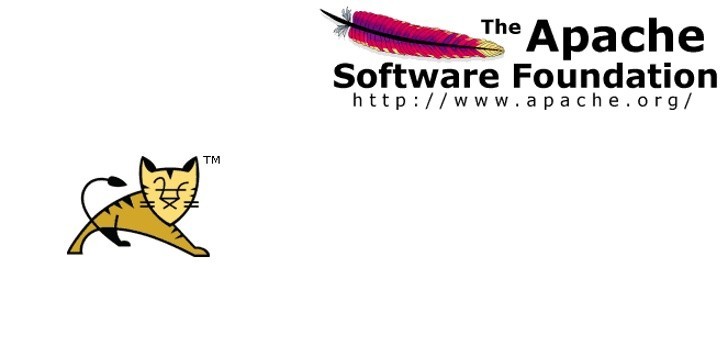


Difficult to exploit vulnerability allows unauthenticated attacker with network access via multiple protocols to compromise Java SE, Java SE Embedded. Supported versions that are affected are Java SE: 7u211, 8u202, 11.0.2 and 12 Java SE Embedded: 8u201. Vulnerability in the Java SE, Java SE Embedded component of Oracle Java SE (subcomponent: RMI). It is likely that users upgrading to 9.0.31, 8.5.51 or 7.0.100 or later will need to make small changes to their configurations. A number of changes were made to the default AJP Connector configuration in 9.0.31 to harden the default configuration.
APACHE TOMCAT 9.0 54 VULNERABILITIES UPGRADE
Users wishing to take a defence-in-depth approach and block the vector that permits returning arbitrary files and execution as JSP may upgrade to Apache Tomcat 9.0.31, 8.5.51 or 7.0.100 or later. It is important to note that mitigation is only required if an AJP port is accessible to untrusted users.
APACHE TOMCAT 9.0 54 VULNERABILITIES CODE
This vulnerability report identified a mechanism that allowed: - returning arbitrary files from anywhere in the web application - processing any file in the web application as a JSP Further, if the web application allowed file upload and stored those files within the web application (or the attacker was able to control the content of the web application by some other means) then this, along with the ability to process a file as a JSP, made remote code execution possible. It was expected (and recommended in the security guide) that this Connector would be disabled if not required. In Apache Tomcat 9.0.0.M1 to 9.0.0.30, 8.5.0 to 8.5.50 and 7.0.0 to 7.0.99, Tomcat shipped with an AJP Connector enabled by default that listened on all configured IP addresses. If such connections are available to an attacker, they can be exploited in ways that may be surprising. Tomcat treats AJP connections as having higher trust than, for example, a similar HTTP connection. When using the Apache JServ Protocol (AJP), care must be taken when trusting incoming connections to Apache Tomcat.

SUSE OpenStack Cloud Crowbar 8 tomcat versions prior to 8.0.53-29.32.1. SUSE OpenStack Cloud 8 tomcat versions prior to 8.0.53-29.32.1. SUSE OpenStack Cloud 7 tomcat versions prior to 8.0.53-29.32.1. SUSE Linux Enterprise Server for SAP 15 tomcat versions prior to 9.0.35-3.57.3. SUSE Linux Enterprise Server for SAP 12-SP3 tomcat versions prior to 8.0.53-29.32.1. SUSE Linux Enterprise Server for SAP 12-SP2 tomcat versions prior to 8.0.53-29.32.1. SUSE Linux Enterprise Server 15-LTSS tomcat versions prior to 9.0.35-3.57.3. SUSE Linux Enterprise Server 12-SP5 tomcat versions prior to 9.0.35-3.39.1. SUSE Linux Enterprise Server 12-SP4 tomcat versions prior to 9.0.35-3.39.1. SUSE Linux Enterprise Server 12-SP3-LTSS tomcat versions prior to 8.0.53-29.32.1. SUSE Linux Enterprise Server 12-SP3-BCL tomcat versions prior to 8.0.53-29.32.1. SUSE Linux Enterprise Server 12-SP2-LTSS tomcat versions prior to 8.0.53-29.32.1. SUSE Linux Enterprise Server 12-SP2-BCL tomcat versions prior to 8.0.53-29.32.1. This issue affects: SUSE Enterprise Storage 5 tomcat versions prior to 8.0.53-29.32.1. A Incorrect Default Permissions vulnerability in the packaging of tomcat on SUSE Enterprise Storage 5, SUSE Linux Enterprise Server 12-SP2-BCL, SUSE Linux Enterprise Server 12-SP2-LTSS, SUSE Linux Enterprise Server 12-SP3-BCL, SUSE Linux Enterprise Server 12-SP3-LTSS, SUSE Linux Enterprise Server 12-SP4, SUSE Linux Enterprise Server 12-SP5, SUSE Linux Enterprise Server 15-LTSS, SUSE Linux Enterprise Server for SAP 12-SP2, SUSE Linux Enterprise Server for SAP 12-SP3, SUSE Linux Enterprise Server for SAP 15, SUSE OpenStack Cloud 7, SUSE OpenStack Cloud 8, SUSE OpenStack Cloud Crowbar 8 allows local attackers to escalate from group tomcat to root.


 0 kommentar(er)
0 kommentar(er)
